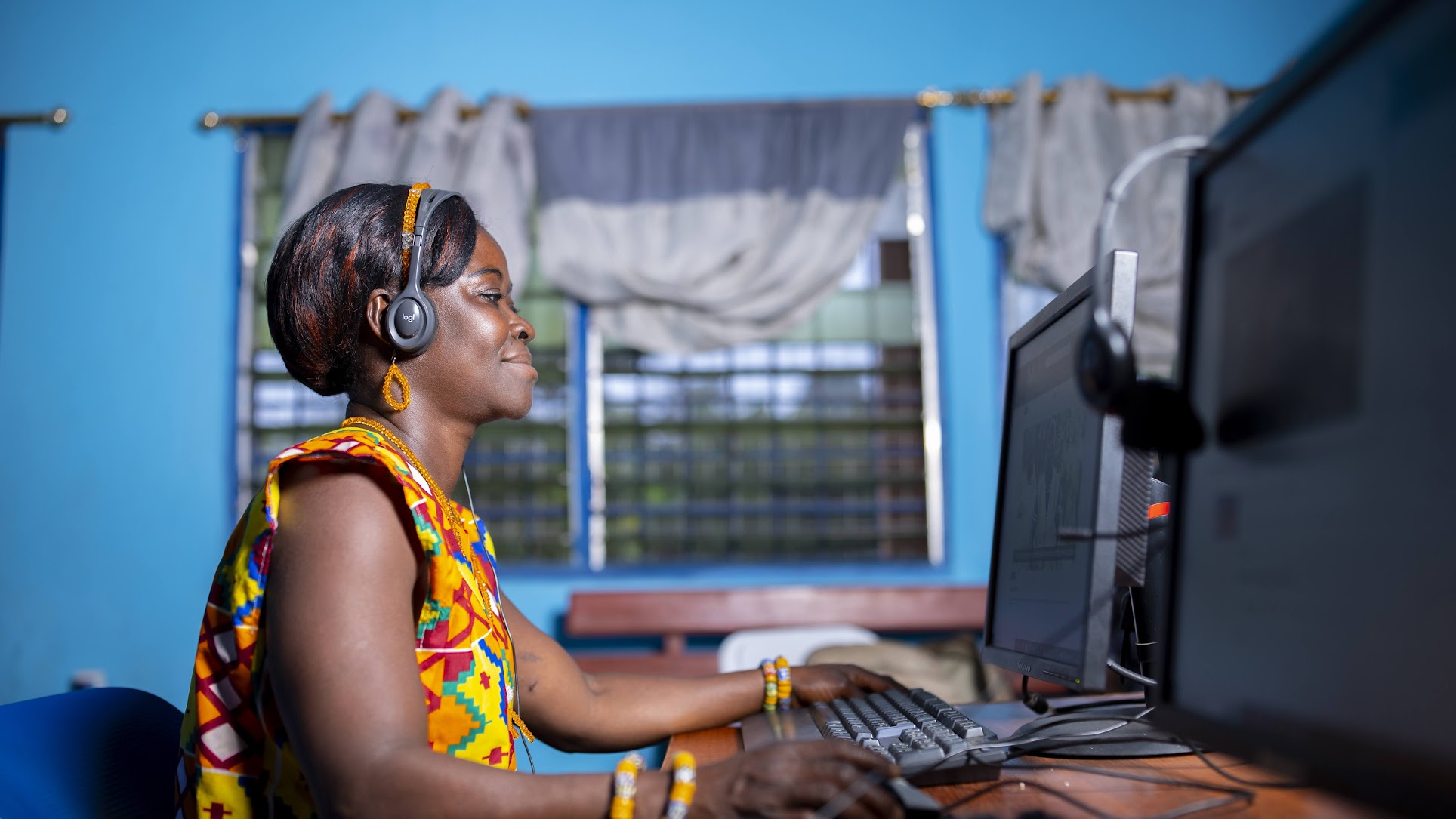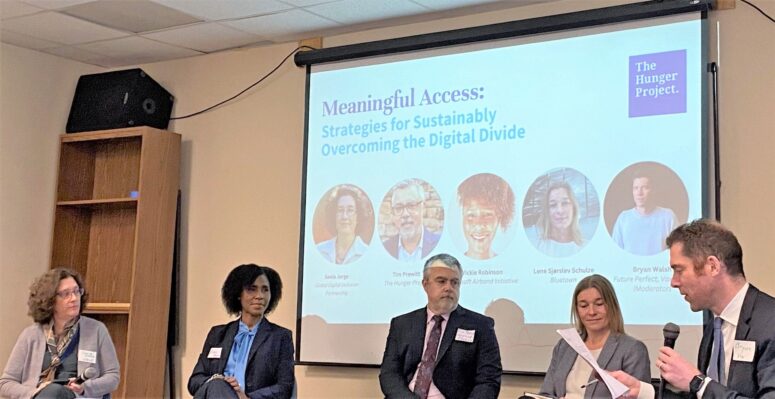Connectivity is about more than just being online, it’s about having quality access and the digital literacy skills necessary to leverage all of the opportunities that exist on the internet.
That’s why, at The Hunger Project, we are working in Ghana, Malawi and Mexico to close the gender digital divide in partnership with Microsoft, USAID and BLUETOWN. Through this global partnership, we are connecting rural communities to the internet and showing local women how technology can make an impact in their communities.

Women like Rachel, in Ghana, are leveraging online resources to grow and strengthen their businesses.
Bryan Walsh, our event moderator and editor of Vox’s Future Perfect, facilitated an engaging and thoughtful discussion addressing the biggest barriers to global connectivity.
Tim Prewitt, President and CEO of The Hunger Project, highlighted the importance of local leaders in implementing new technologies — leaders who work within community culture to ensure the sustainability of new programs. Our Epicenter Strategy in Africa is built on this framework of grassroots leaders.
Vickie Robinson, General Manager for the Microsoft Airband Initiative, also called attention to the importance of inclusive, community-led programs. She celebrated the work of The Hunger Project, Airband, and BLUETOWN, which has connected more than 6,000 women in rural Ghana to online resources. “We are going where others are not going and we are serving those who have not been served.”
Lene Schulze, of BLUETOWN, echoed the importance of supporting projects that are led by the communities being served. In regards to creating infrastructure for expanding internet access, she said, “BLUETOWN is looking into how to make sure that the local populations do not have to carry the brunt of the cost over time.”
Closing the gender digital divide is not only critical to development, it can be achieved in a cost effective manner. As Sonia Jorge, the founder and Executive Director of the Global Digital Inclusion Partnership, shared:
It would only cost about $420 billion to connect those who are unconnected by 2030 and that is the amount that the world spends on soda every year.
Closing the digital divide will not be easy. A well rounded approach that empowers local leaders is vital to the success of connectivity programs. The discussion at CSW showed hope for the future through the continued commitment to community-led changes and global partnerships between the private sector, governments, NGOs, and tech companies.
Empowering women and girls to meaningfully engage online is essential to the development of rural communities, and to conclude with the words of Vickie Robinson, “women are the backbone of society and by ensuring that women are able to be connected, we will change the world.”

